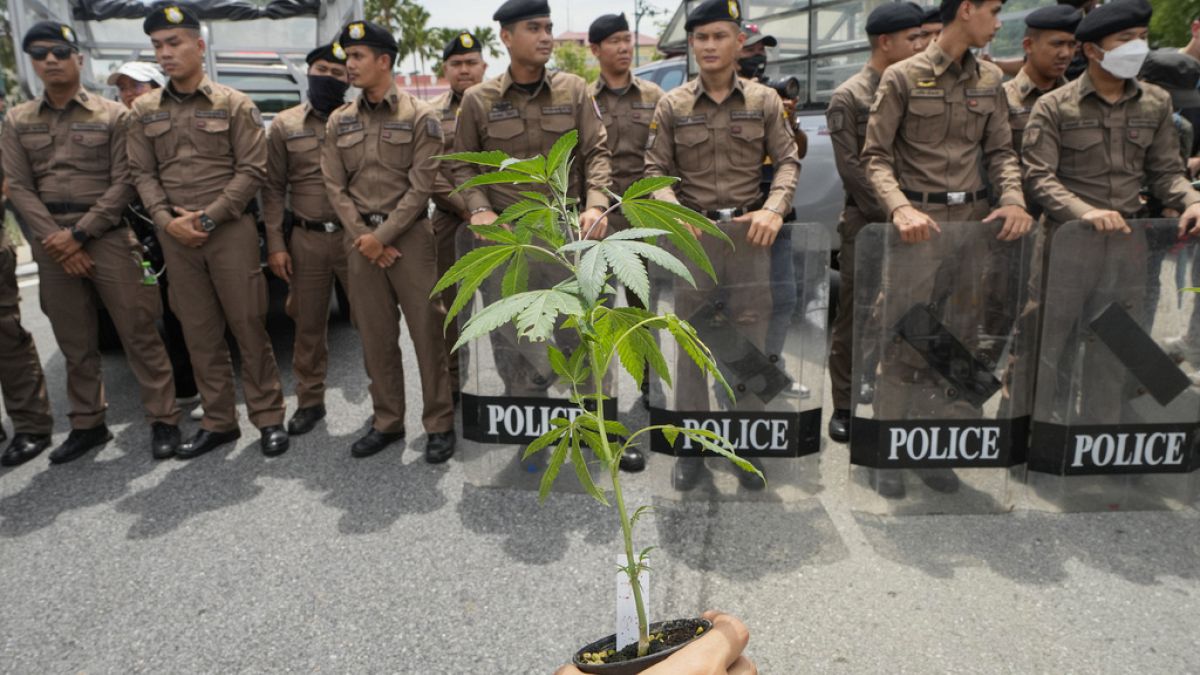Recently, a health ministry committee in Thailand proposed relisting cannabis as a narcotic for medical and research purposes, with the effective date set for January 1 pending approval. This decision has sparked controversy among cannabis activists and entrepreneurs who gathered in Bangkok to voice their opposition. Prasitchai Nunuan and Chokwan Chopaka, two prominent figures in the cannabis industry, advocated for separate regulation by the health ministry and criticized the government for allegedly favoring certain interest groups.
The proposal to reclassify cannabis as a narcotic has raised concerns among those who believe in the plant’s potential benefits for medical and research purposes. Many argue that cannabis should be regulated separately from other narcotics due to its unique properties and potential to alleviate a wide range of health conditions. Additionally, some fear that relisting cannabis as a narcotic could hinder research and access to medical marijuana for patients in need.
Opponents of the proposal, including cannabis activists and entrepreneurs, have come together in Bangkok to push back against the decision. Prasitchai Nunuan and Chokwan Chopaka, well-known advocates for cannabis legalization, have taken a stand against the government’s plans, calling for a more nuanced approach to regulating cannabis. They have accused the government of bowing to the interests of certain groups at the expense of patients and researchers who could benefit from medical marijuana.
The debate over the reclassification of cannabis highlights the complexities of regulating a plant that has long been stigmatized and misunderstood. While some argue that cannabis should remain classified as a narcotic, others believe that it should be treated differently due to its potential therapeutic properties. As Thailand grapples with this issue, it will be important for stakeholders to come together and find a balanced approach that prioritizes both patient access and scientific research.
In light of the controversy surrounding the proposed reclassification of cannabis, it is clear that there is a need for a more informed and evidence-based discussion on the topic. By engaging in open dialogue and considering the perspectives of all stakeholders, Thailand can develop a regulatory framework that supports the medical and research potential of cannabis while addressing concerns about misuse and abuse. Ultimately, the decision to reclassify cannabis should be based on the best available evidence and the needs of patients and researchers who stand to benefit from its legalization.
As the deadline for the decision on the reclassification of cannabis approaches, it is crucial for all stakeholders to actively engage in the discussion and advocate for a regulatory framework that reflects the unique properties of the plant. By working together to find common ground and prioritize the interests of patients and researchers, Thailand can ensure that the potential benefits of medical marijuana are realized while mitigating any potential risks associated with its use. Ultimately, the decision on the reclassification of cannabis will have far-reaching implications for the future of medical cannabis in Thailand and beyond.










